Cracking down on an illegal brothel
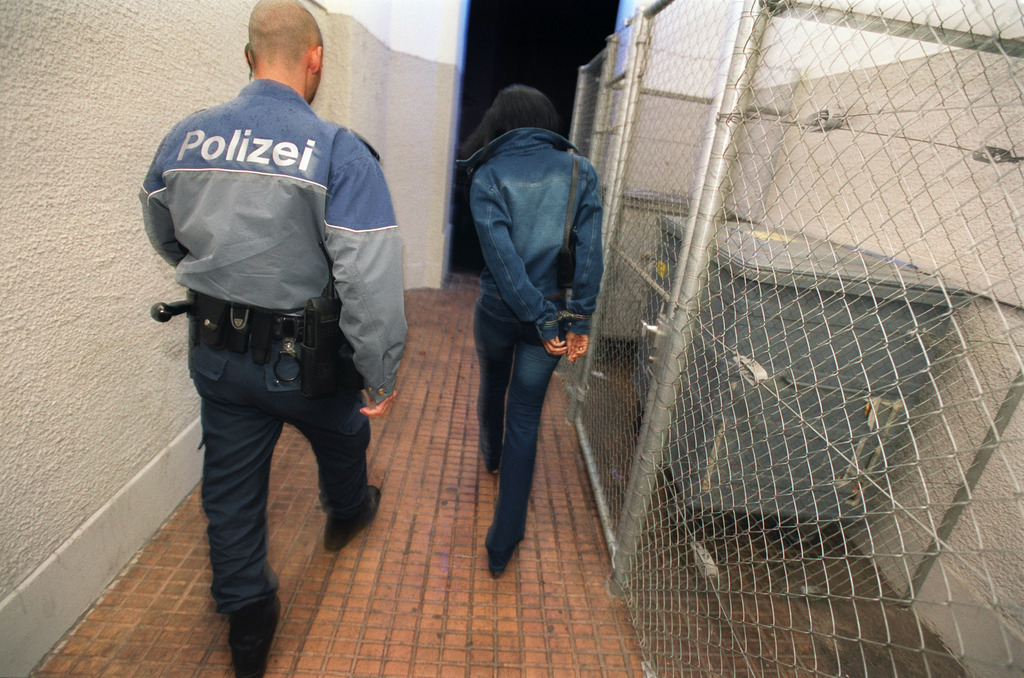
It is coming up to 9pm at the Lugano police station. Twenty officers in uniform and bulletproof vests are preparing for a raid. The target - a small brothel close to the border with Italy.
On the ground floor there is a café-bar, where customers and prostitutes can meet. The bedrooms – seven of them – are upstairs.
The operation starts like in a movie: a convoy of squad cars and an armoured van roar out of the station. After a few miles we arrive at our destination. The building is surrounded, with exits all covered. Hands stray to pistol grips and eyes are on the watch.
The police burst in and march up to the first floor. The doors are closed. “Open up, police!”, shout the officers. Three couples hurriedly get dressed and let them in. The fourth couple refuse, but cannot do much when the door is forced open. “You could at least have let me finish,” says a young man, managing a wink. “It’s not what you think. She’s my girlfriend.”
On the floor below, other officers arrest the manager, and question two scantily-clad young women and a few middle-aged men seated at the bar.
Blitz on brothels
Since Operation Domino was launched in March 2012, police have been striking heavy blows against the world of illegal prostitution in Ticino. “We have been out to inspect all the locations in our territory, 32 in all. Eight have had to put themselves in order,” explains chief inspector Alex Serfilippi, of the Ticino vice squad.
The establishment raided on this particular night is regarded as second class by experienced customers. This is shown by lots of comments found on blogs.
“We keep an eye on those sites to try to understand how a particular joint operates, and to find out about new ones,” Serfilippi says. “At times they get turned in by ordinary citizens or even by the competition, which in this game is pretty ruthless.”
Human trafficking?
Sitting on the edge of the bed, now at a proper distance from one another, the customers and prostitutes look dejected. The first to be questioned are the men.
Many of the customers come from neighbouring Italy, explains Serfilippi. They are attracted by the more liberal laws, but also by greater discretion and more hygienic conditions. Unlike other European jurisdictions, the customer is not liable to prosecution in Switzerland and prostitution, if it is carried out within the law, is considered a legal activity.
With the brothel all locked up, the manager and the four girls – all of Romanian nationality and without work permits – are taken to the headquarters of the vice squad for questioning. It is now one in the morning, and the hardest part is about to begin.
We hear the statement of “Sandy”. Barely older than 20, she has worked for several years as a prostitute throughout Switzerland, Italy and Romania.
“I start work in the early afternoon, when the place opens. For the use of the room the manager takes SFr100 a day, even when we can’t work.” To be with Sandy the customers pay SFr100 per half-hour. Before these raids started, the price of a room was up to SFr200 in some brothels in the canton.
It is hard to know what these young women have left at the end of the month, between money going to pimps, the cost of rooms and the money sent home to their families.
“Following our inquiries during these past months we are still not sure whether these girls are victims of human trafficking. They all say they came to Switzerland knowing what they would be doing”, explains Serfilippi.
“In reality, we know that these women are always accompanied by a pimp who passes as a friend, lover or relative, and manages all their earnings. Sometimes they are supervised by other prostitutes. But it is not easy to lay charges without the testimony of victims, and they are part of an implacable conspiracy of silence.”
Lucrative business
In the room next door, a vice squad detective is questioning the manager of the brothel. The man is charged with conducting and promoting illegal prostitution (his brothel is not officially approved and the girls should have been subject to fixed rules), breaking the law on foreign nationals (the girls had no permits), and loan sharking. These are the same charges brought against other brothel-keepers in recent months.
“These are mostly Swiss citizens, or at least residents in the canton. Under law they are responsible for what goes on in these joints, but often the real economic beneficiary is someone else: respectable citizens of Ticino like architects, industrialists and members of the liberal professions,” said Serfilippi.
“The turnover can be as much as three million a year for the larger brothels with up to 60 rooms.”
So it is not altogether surprising that the investigation has also turned up money laundering and tax evasion.
After two hours of questioning, the manager leaves the station with his lawyer, aware of the charges he will have to face at a court date in the coming months.
It is five in the morning and the officers are all exhausted. The girls have taken a taxi home. They have been told to get a work permit and register as prostitutes. Some will take this advice.
Others will continue to work illegally – in the next few days they will be looking for a new locale where they can operate, in Ticino or another canton, or will head for Italy or Romania. In any case, they will be sure to lie low for the time being.
In Switzerland prostitution is considered legal and subject to tax just like any other economic activity.
Several cantons, including Ticino, have come up with specific laws to regulate the industry.
Since 2002 Ticino law forbids the carrying out of prostitution in “places where it may disturb public order” and requires prostitutes to register with the authorities.
In spite of this, illegal brothels have mushroomed in the past few years, exploiting the loopholes in a law that is now considered too vague.
In March 2012 the Ticino united vice squad mounted a blitz against illegal prostitution and discovered cases of exploitation, loan-sharking, tax evasion and money laundering.
A new law is now before the cantonal parliament. The bill gives police more powers, toughens health regulations, but also provides for designated red-light districts.
(Translated from Italian by Terence MacNamee)

In compliance with the JTI standards
More: SWI swissinfo.ch certified by the Journalism Trust Initiative

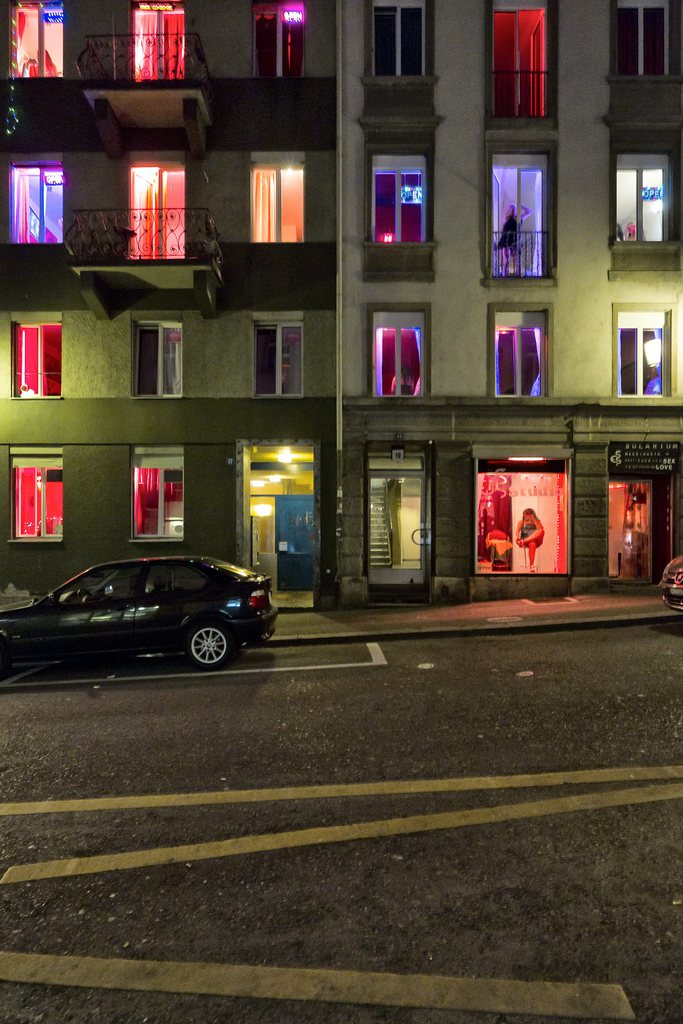
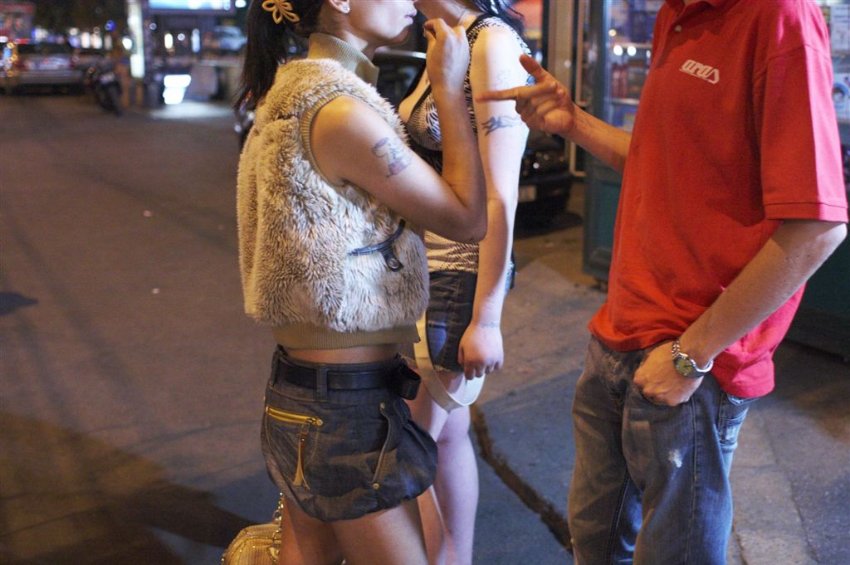
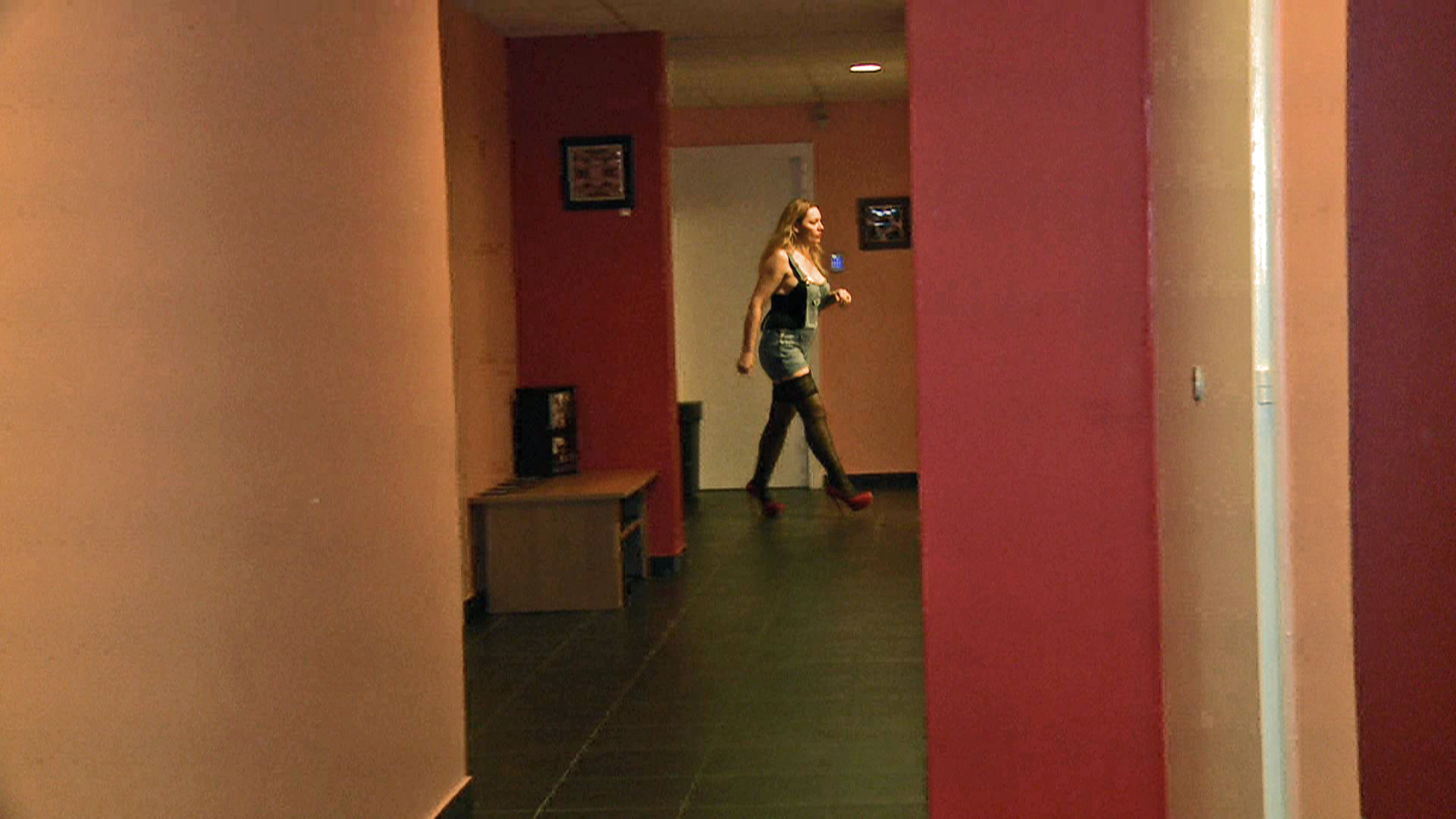
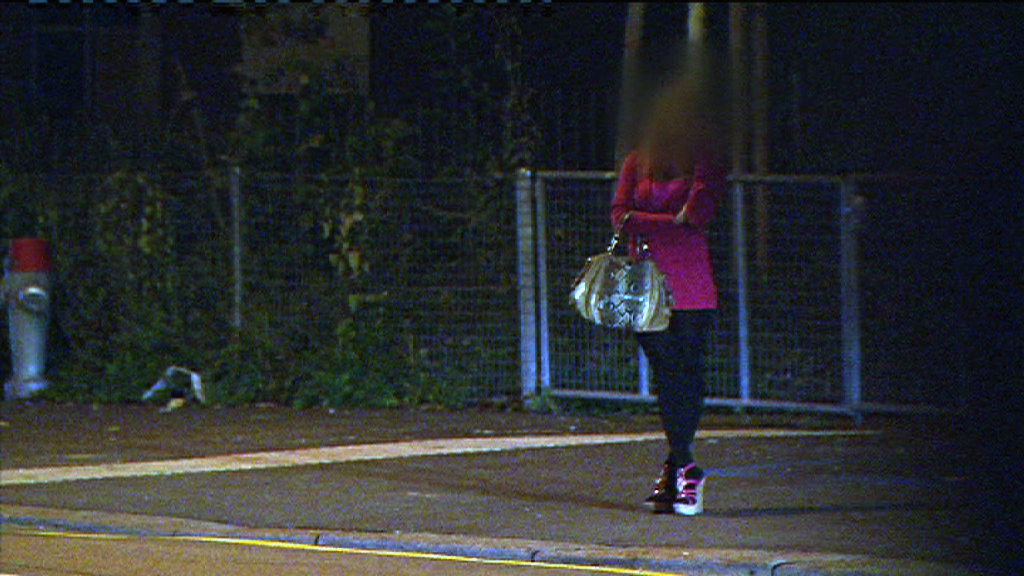
You can find an overview of ongoing debates with our journalists here. Please join us!
If you want to start a conversation about a topic raised in this article or want to report factual errors, email us at english@swissinfo.ch.